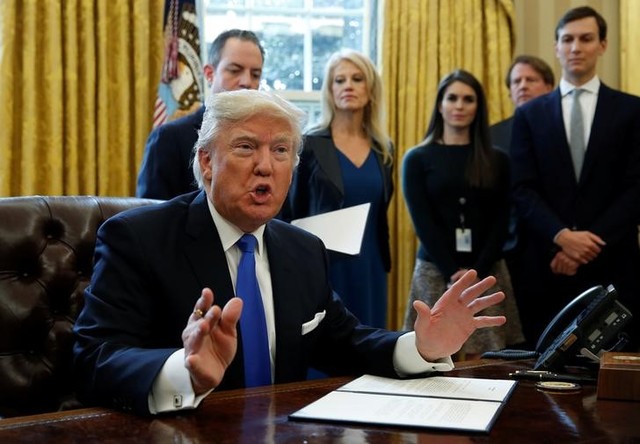Somalis could suffer visa restrictions to US as Trump churns out executive orders


Somalis could be worst hit by Trump’s anti-immigration policy as his administration moves to impose visa restrictions with the first casualties landing in Mogadishu Wednesday.
Trump, in a barrage of executive orders this week is expected to cut off issuance of visas to citizens from Syria, Iraq, Iran, Libya, Somalia, Sudan and Yemen making good his campaign pledge to overhaul former President Obama’s soft spot for immigrants especially from conflict countries such as Syria.
Ninety Somalis landed in Mogadishu Wednesday following a deportation order in the US in what is believed to be speedy implementation of Trump’s strict dealing with illegal immigrants in the US. The deportees among them two Kenyans arrived at Jomo Kenyatta International Airport before a Mogadishu bound plane transported them home.
Trump, who tweeted that a “big day” was planned on national security on Wednesday, is expected to ban for several months the entry of refugees into the United States, except for religious minorities escaping persecution, until more aggressive vetting is in place, Reuters reported.
The new president had strongly pushed his America first policy during the campaigns promising to make it difficult for immigrants to access the US even as the Obama administration was easing entry requirement for Syrians fleeing the war back home.
Stephen Legomsky, who was chief counsel at U.S. Citizenship and Immigration Services in the Obama administration, told Reuters the president had the authority to limit refugee admissions and the issuance of visas to specific countries if the administration determined it was in the public’s interest.
“From a legal standpoint, it would be exactly within his legal rights,” said Legomsky, a professor at Washington University School of Law in St. Louis. “But from a policy standpoint, it would be terrible idea because there is such an urgent humanitarian need right now for refugees.”
Goobjoog News and Reuters